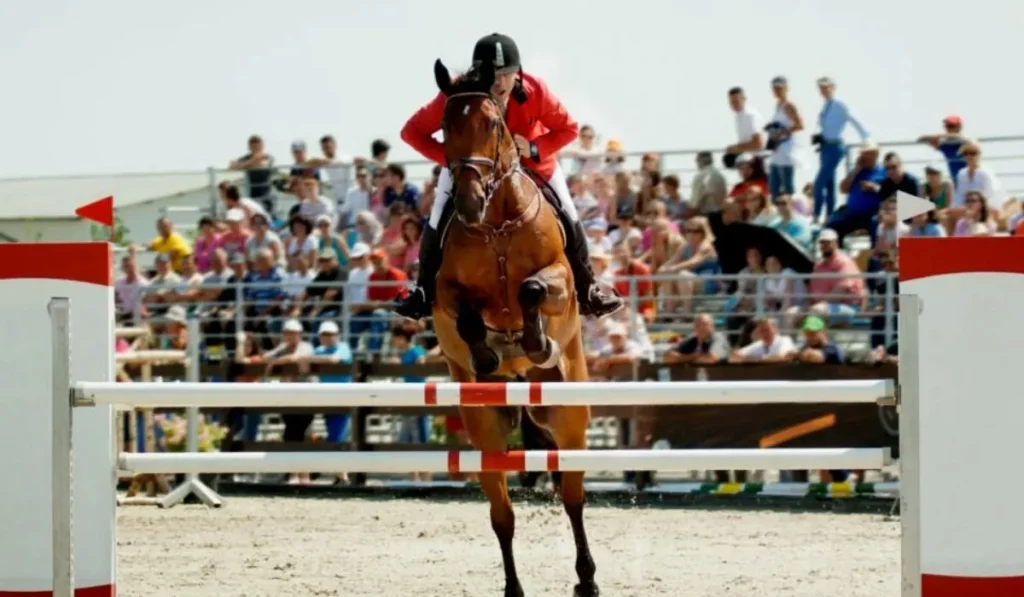It is worth noting that highly successful people are those who turn pressure into opportunities to conquer a task while growing stronger and more experienced in the process.
“A popular saying comes to mind that says fake it till you make it.”
In the face of pressure and challenge, if you act as if you are calm and confident, eventually it will become a reality.
Managing pressure in high-stakes competition could present a serious challenge to many, high-stakes competition could simply mean competition in which the people involved can gain or lose a great deal. As a result of this, much pressure is often exerted on the determinant subject as the athletes or sportsmen or women who are directly involved.
Factors That Contribute To Pressure Being Faced By Performers
There are several factors that contribute to the pressure being faced by performers, and these factors may include: Class, status, stage of competition, type of competition, and associated history.

👉 Class: The type of team or country that is being represented we determine the intensity of pressure to be experienced.
👉 Status: personally, the status of the athletes, sportsmen, or sportswomen will go a long way to determine the type of pressure. Even the greatest performer feels pressure more than the upcoming performer, this is a true reality.
👉 Stage Of Competition: A particular competition that is grouped in stages as performers advance across different stages of the competition seems to exert more pressure on the performers at the final stage when compared to the initial stage.
Imagine a penalty kick at the final of a football competition.
👉 Type Of Competition: The pressure the Olympic games will exert on athletes as compared to a regional competition would be enormous. New players across the globe, new records, some records to be maintained by the previous winners, and a lot more.
👉 Performers Associated History: LeBron James with lots of championship victory records will have more records to protect and simultaneously have more records to break from the past championship. These exert directly or indirectly a type of pressure on the known performers.
There are typically two types of performers in a competition: players who have the skills and status and players who have the skills but not yet the status.
Research has shown that players who have the skills and not yet the status perform far better than those with the skills and the status in major award-winning competitions, it indirectly implies that status is more of a burden that outweighs the known performers.
For an athlete, pressure is a function of almost three things:
•The importance of a competition outcome
•The uncertainty of the outcome
•The quality of the task surrounding the outcome.
All these are mostly affected by status and success.
Important Factors To Consider When Handling Pressure In High-Stakes Competitions
When under pressure, reduce the stake of failure. A coach who is leading successful performers in a high-pressure event must be deliberate in his or her actions to reduce the overwhelming baggage performers can attach to failure.
A performer can reduce the stake of failure by asking him or herself some relevant and self-associated important questions like: What are the things that are the most important to you- that are relevant to your being- and won’t change regardless of the outcome of the competition.
Read More:- Overtraining Prevention And Recovery: Ensure Your Peak Performance
Reduce The Demand Of Unnecessary Attachment
The volume of Unnecessary Attachment and demand that surround tasks in a competition can dramatically increase pressure, you can either accommodate more Unnecessary demands or eliminate the attachment that is creating the pressure.
Carefully consider each of your personal attachments to the competition and yourself.
Ask yourself the following relevant questions:
Will this help you grow in a way that matters to you?
Will eliminating a particular type of pressure source lead to regret? Is this helping or hurting performance on what matters most?
If an attachment is hurting performance, limiting growth, and is not linked to regret, definitely such should be eliminated. If such will not help you grow in a way that matters to you, please steer clear.
Outside the quality of performance on the pitch, and away from status and trophy accomplishment, performers must do everything possible to eliminate pressure. This will not only help their delivery confidence, but it will also help their mental and emotional status while carrying out other daily activities away from their chosen profession.